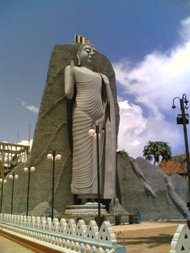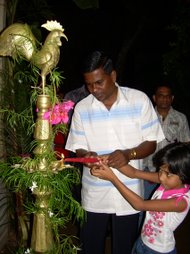Chest pain or cardiac neurosis is characterized by anxiety, which is, severe enough to make most people fear they will die suddenly from a heart attack. They complain of pain in the left side of the chest, breathlessness, palpitations, tiredness, dizziness., and rarely fainting attacks. 10-15% of all patients referred to Cardiac Department for chest pain is due to cardiac neurosis. It occurs more often in women than in men (3:2). There is usually a family history of anxiety prone parents or children.
Childhood neurotic characteristics, such as fears of the dark, animals, heights, nail biting; stammering, nightmares and sleepwalking are common in these people. They have shy introspective and dependent personalities. They usually tend to be neat, tidy and highly conscientious as adults.
Most of us are familiar with the uncomfortable thudding of our hearts during moments of fear, and have witnessed a fainting attack provoked by the sight of something causing extreme apprehension. The defense reaction, which happens during an emergency or with a traumatic event, has behavioral and cardiovascular components, appear to be triggered with relative ease in certain people. The person has an anxious face and the pupils may be dilated. He often looks pale and sits on the edge of the chair and clearly cannot relax. He may grip the arms with his hands or fidget with a handkerchief or a ring. The voice may be tremulous and the person's hands frequently clear the throat. He will have cold clammy hands and he looks frightened and may be near to tears. They often complain of sleep disturbance and do not feel refreshed in the morning. These people feel tired and listless and are worn out by minimal effort. Headache is common, usually vague or throbbing.
During a typical 'attack' the blood pressure usually increases and there might be palpitation and loud heart beats. He may complain left sided chest pain, which might radiate along the left arm. Breathlessness may occur in circumstances that would not affect a normal person. Dizziness or momentary faintness accompanied by 'light headedness' may occur. Sweating of the palms and tremors of the fingers is very common.
In these people there will be decreased sexual activity due to impotence and with the fear that sexual activity could precipitate a heart attack. Alcohol, which reduces anxiety and temporarily restores confidence, tends to be abused. References to death or disease in newspapers or on television cause a further deterioration in confidence.
The diagnosis of a cardiac neurosis is made on positive psychological grounds, and not merely by exclusion. A physical examination followed by investigations such as a chest x-ray, ECG, and blood tests are necessary to allay the patient's fears of heart disease and to give the doctor confidence that there is not an underlying physical disorder. It is not uncommon to have an anxiety state with thyroid disease, heart disease, or to find that following a heart attack the patient is preoccupied with his heart and may impose unnecessary physical restriction upon himself.
Unconditional reassurance will be possible if the examination and investigations have been thorough. Most patients need to be told that the mind controls the heart, breathing and sweating and can produce chest pain, shaking of the body or even fainting.
Medications, which will reduce anxiety and depression, are useful in acute conditions. Relaxation training, meditation and exercises are valuable non-pharmaceutical methods.
Alcohol abuse and excessive use of caffeine (coffee) should be looked into, in the management.
Routine medical examination will help to reassure the patient that his symptoms are being taken seriously, and that his doctor thoroughly understands his case.
The final outcome is good provided the condition is recognized early and the correct treatment is instituted. An expression of empathy, genuineness and warmth from the doctor and the family can be the most powerful tranquilizer.--- The Island





No comments:
Post a Comment